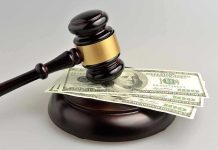
Robert F. Kennedy Jr., Health and Human Services Secretary, backs West Virginia’s initiative to ban food stamp purchases of soft drinks, stirring a significant debate.
Key Takeaways
- Kennedy supports West Virginia’s ban on using food stamps for soft drinks, approved by the Trump administration.
- There is tension between HHS and USDA regarding Kennedy’s involvement in SNAP-related issues.
- USDA Secretary Brooke Rollins and Kennedy attended a private meeting discussing this initiative with MAGA influencers.
- The initiative aims to reduce sugary drink consumption among low-income communities.
- USDA signals openness to support states applying for similar waivers.
Kennedy’s Advocacy for Nutritional Reform
Robert F. Kennedy Jr. advocates a ban on utilizing food stamps for purchasing sodas. The initiative, recently approved by the Trump administration for West Virginia, aims to direct food assistance towards healthier choices. At a public gathering in Martinsburg, Kennedy highlighted Governor Patrick Morrissey’s leadership in spearheading nutritional reform, urging other states to adopt similar measures. Governor Morrissey emphasized the importance of steering taxpayer dollars toward nutritious foods. “Taxpayer dollars should be targeted toward nutritious foods,” said Morrissey.
This decision aligns with the broader ‘Make America Healthy Again’ movement, encouraging nutritious eating and increased transparency regarding food content in schools. It signals a shift in how SNAP benefits might be used, focusing more on health rather than caloric intake. As states like West Virginia pitch policies aiming to ban certain food dyes and boost educational requirements for SNAP eligibility, significant changes in the dietary landscape are anticipated.
Differing Opinions and USDA’s Position
Despite Kennedy’s assertive stance on limiting soda purchases through food stamps, resistance arises from unexpected sectors. The USDA traditionally handled SNAP matters, yet Kennedy’s active involvement begins to draw tension between departments. USDA spokesperson Audra Weeks clarified the agency’s supportive stance, despite internal disagreements reportedly surfacing.
In a recent meeting, both USDA Secretary Rollins and Kennedy expressed mutual interests in limiting sugar-laden drink purchases by low-income families. Rollins pointed out, “The top item that food stamps support through taxpayer dollars: Sugary drinks, to a group of children that come from a lower socioeconomic ladder that are in many ways from very impoverished families. And yet, that’s the number one thing our food stamp program is buying.”
Broader Impact on Health and Industry
West Virginia’s SNAP changes could indicate stricter future policies, impacting both public health and the beverage industry. The American Beverage Association voices strong opposition, citing undue government overreach and restricted consumer choice. With sugary beverages ranking as the highest purchased item under SNAP, their concern is understandable. However, supporters argue the government’s role in supplementing nutritional benefits justifies defining eligible purchases.
Despite this, some voices, including Merideth Potter, counter the narrative pointing out, “What’s unhelpful about this whole conversation is that soda is not driving obesity.” As Kennedy’s reforms unfold, their ripple effects may shape federal SNAP eligibility laws and promote a healthier diet trend.
Sources
2. RFK Jr. Faces Backlash Over Soda Ban for Food Stamp Users









